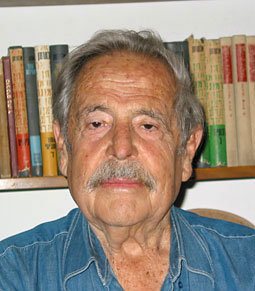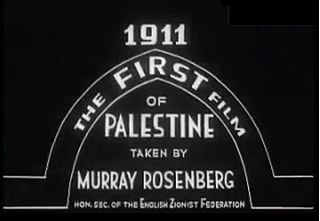
The Jewish Agency for Israel, formerly known as the Jewish Agency for Palestine, is the largest Jewish non-profit organization in the world. It was established in 1929 as the operative branch of the World Zionist Organization (WZO).

Deborah Esther Lipstadt is an American historian and diplomat, best known as author of the books Denying the Holocaust (1993), History on Trial: My Day in Court with a Holocaust Denier (2005), The Eichmann Trial (2011), and Antisemitism: Here and Now (2019). She has served as the United States Special Envoy for Monitoring and Combating Anti-Semitism since May 3, 2022. Since 1993 she has been the Dorot Professor of Modern Jewish History and Holocaust Studies at Emory University in Atlanta, Georgia, US.

The World Zionist Organization, or WZO, is a non-governmental organization that promotes Zionism. It was founded as the Zionist Organization at the initiative of Theodor Herzl at the First Zionist Congress, which took place in August 1897 in Basel, Switzerland. The goals of the Zionist movement were set out in the Basel Program.

Gideon Hausner was an Israeli jurist and politician. Between 1960 and 1963, he served as Attorney General and was later elected to the Knesset and served in the cabinet.

Haim Gouri was an Israeli poet, novelist, journalist, and documentary filmmaker. Widely regarded as one of the country's greatest poets, he was awarded the Israel Prize for poetry in 1988, as well as being the recipient of several other prizes of national distinction.

Central Zionist Archives is the official archive of the institutions of the Zionist Movement: the World Zionist Organization, the Jewish Agency, the Jewish National Fund, and Keren Hayesod/the United Israel Appeal as well as the archives of the World Jewish Congress. The archive is located in West Jerusalem adjacent to Binyanei HaUma.
As an organized nationalist movement, Zionism is generally considered to have been founded by Theodor Herzl in 1897. However, the history of Zionism began earlier and is intertwined with Jewish history and Judaism. The organizations of Hovevei Zion, held as the forerunners of modern Zionist ideals, were responsible for the creation of 20 Jewish towns in Palestine between 1870 and 1897.

Tuvia Friling is an Emeritus professor at Ben-Gurion University of the Negev, Israel. Previously he served as a senior researcher at the Ben-Gurion Research Institute for the Study of Israel and Zionism and a lecturer at the Israel Studies Program both at Ben-Gurion University of the Negev.

Moshe Bejski was a Polish-born Israeli Supreme Court Justice and President of Yad Vashem's Righteous Among the Nations Commission. After surviving the Holocaust with the help of Oskar Schindler, Bejski immigrated to Israel. In 1961, he testified about his experiences during the Holocaust during the trial of Adolf Eichmann. He served on the Tel Aviv-Yafo district court from 1968 to 1979 and was appointed to the Supreme Court of Israel, where he served from 1979 to 1991. As President of the Righteous Commission from 1975 to 1991, Bejski helped honor thousands of Holocaust rescuers. He also headed the Bejski Commission in the aftermath of the 1983 Israel bank stock crisis, which led to the nationalization of most of Israel's major banks.

Yaacov Ben-Dov was an Israeli photographer and a pioneer of Jewish cinematography in Palestine.

The Eichmann trial was the 1961 trial in Israel of major Holocaust perpetrator Adolf Eichmann who was captured in Argentina by Israeli agents and brought to Israel to stand trial. The capturing of Eichmann was criticized by the United Nations, calling it a "violation of the sovereignty of a Member State". His trial, which opened on 11 April 1961, was televised and broadcast internationally, intended to educate about the crimes committed against Jews by Nazi Germany, which had been secondary to the Nuremberg trials which addressed other war crimes of the Nazi regime. Prosecutor and Attorney General Gideon Hausner also tried to challenge the portrayal of Jewish functionaries that had emerged in the earlier trials, showing them at worst as victims forced to carry out Nazi decrees while minimizing the "gray zone" of morally questionable behavior. Hausner later wrote that available archival documents "would have sufficed to get Eichmann sentenced ten times over"; nevertheless, he summoned more than 100 witnesses, most of whom had never met the defendant, for didactic purposes. Defense attorney Robert Servatius refused the offers of twelve survivors who agreed to testify for the defense, exposing what they considered immoral behavior by other Jews. Political philosopher Hannah Arendt reported on the trial in her book Eichmann in Jerusalem: A Report on the Banality of Evil. The book had enormous impact in popular culture, but its ideas have become increasingly controversial.

Yechiam Weitz is an Israeli professor and historian.
Harry Sacher was a British businessman, journalist, and Zionist leader. He was appointed director of Marks & Spencer in 1932.

Yaakov Hagoel, is the Chairman of the Executive of the World Zionist Organization. He was formerly acting chairman of The Jewish Agency for Israel.
The Kedem Auction House was founded in 2008 in Jerusalem as an auction house for Judaica and Israeliana. Kedem is one of the leading auction houses in this field in Israel and worldwide.

Gerard Behar Center is a major arts centre in Jerusalem, Israel, for independent theatre, dance, and musical productions, children's shows, art exhibitions, artist workshops, and festivals. In 2010 the center hosted over 900 events with attendance in excess of 263,600 participants. The center includes two theatres and is home to two dance companies, Kolben and Vertigo.

Avraham Aviel (Lipkunski) is a writer, director of a book distribution agency called Beith Alim, and a witness in the Eichmann trial.
The Jewish Cause: An Introduction to a Different Israeli History is the second book by Moshe Berent. The book was published in Hebrew in 2019 in Jerusalem in a series of books "Interpretation and Culture" in Carmel Publishing House, edited by Prof. Avi Sagi. The book expands on the themes of Berent's earlier book "A people like all the peoples - towards the establishment of an Israeli republic" in an attempt to answer the questions regarding the Labor leadership of the Zionist movement:

The First Film of Palestine is a 1911 documentary film made in Ottoman Palestine. The documentary is a short travelogue created by Murray Rosenberg, who served as Honorable Secretary of the English Zionist Federation. It is the earliest full film created in Palestine and the earliest Zionist film.














